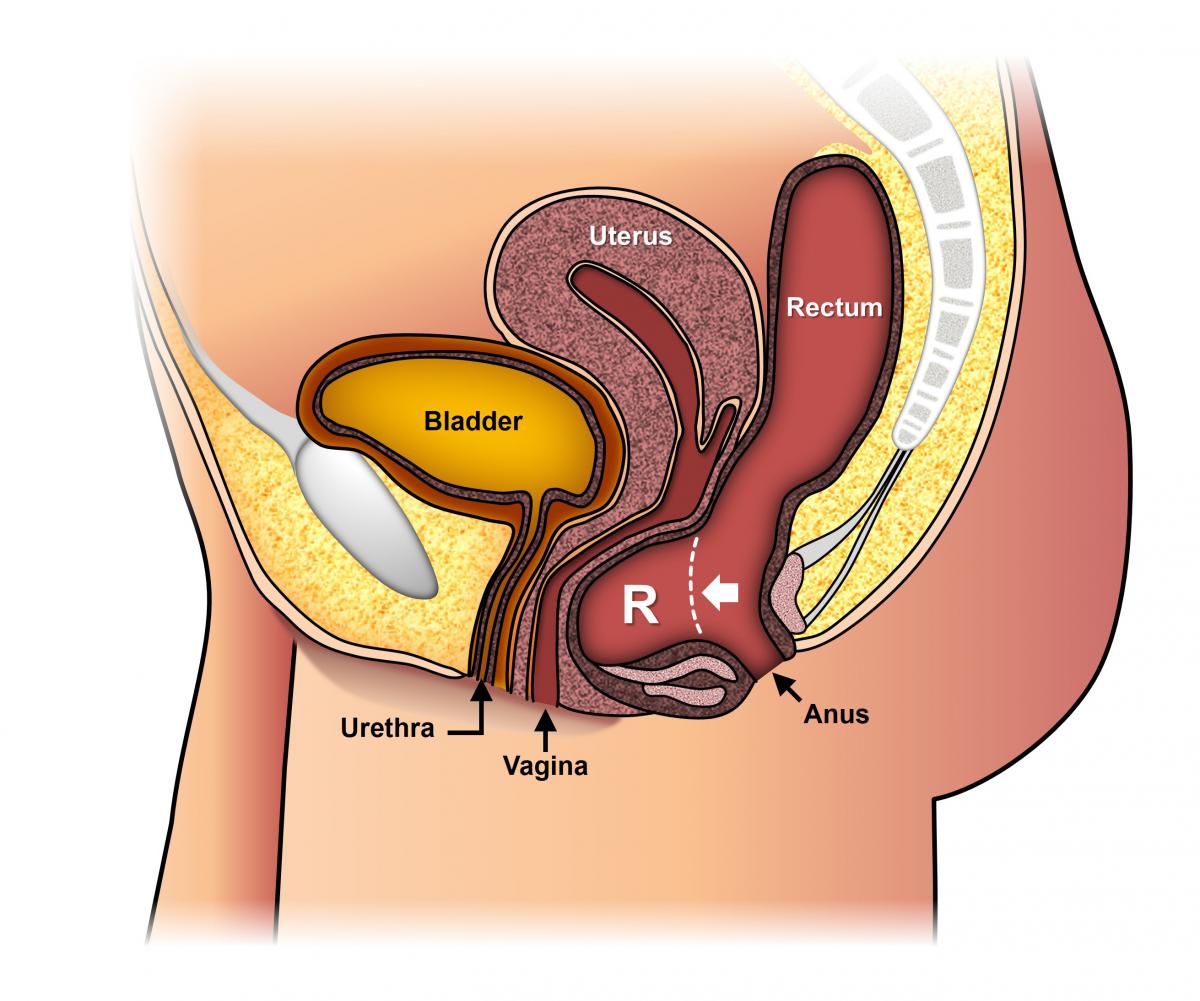
Rectocele
Rectocele is also known as posterior vaginal wall prolapse. Rectocele is a disorder in which the tissue between your rectum and vagina weakens causing your rectum to expand onto the backside of your vagina.
Overview
The rectum is the lower portion of your colon (large intestine). Your rectum and vagina remain in place because the muscles and ligaments in your pelvis known as your pelvic floor keep them in place. When your pelvic floor becomes weak, these organs might shift and even collide. Rectocele is a type of pelvic organ prolapse (POP) that occurs when organs droop due to a weak pelvic floor. Rectocele is frequently associated with other types of pelvic organ prolapse in which organs such as your uterus or bladder slip out of place.
Causes
Rectoceles are typically caused by thinning of the rectovaginal septum (the tissue that connects the rectum to the vagina) and weakness of the pelvic floor muscles. Numerous factors might contribute to pelvic floor weakness, including:
• Vaginal birthing
• Vaginal delivery trauma (e.g. use of forceps or vacuum during delivery ripping or episiotomy which is a surgical cut in the muscle area between the vagina and the anus made soon before delivery)
• Constipation history
• Repeated straining during bowel movements
• Rectal or gynaecological surgery (e.g. hysterectomy)
• As you become older, your pelvic floor gets weaker. Menopause produces numerous changes in your body, including a loss of muscle tone in your pelvic region.
• Chronic cough or bronchitis: Prolonged coughing caused by asthma, smoking or respiratory disease can strain your pelvic floor over time, increasing your risk of rectocele.
• Heavy lifting was performed repeatedly. A job that requires a lot of heavy lifting can put a lot of strain on your pelvic floor muscles, leading them to stretch and weaken.
• Having a bigger body: Obesity can raise your chances of developing rectocele.
Symptoms
The majority of persons with a minor rectocele have no symptoms. When the rectocele is big it usually causes a visible bulging into the vagina. Rectal Symptoms:
• Difficulty having a complete bowel movement
• Stool gets stuck in the rectum bulge
• To have a bowel movement you must press on the vagina and/or enter the space between the rectum and the vagina.
• Straining with bowel movements
• The urge to have multiple bowel movements throughout the day
• Constipation
• Rectal pain
Vaginal Symptoms:
• Dyspareunia (pain associated with sexual intercourse)
• Bleeding in the cervix
• A feeling of fullness in the vaginal cavity
Ayurvedic View
Phalini yoni vyapad- Due to vata vruddhi (aggravated), by food and activities, excess exercising, lifting heavy weight etc, This prakupita (aggravated) vata dosha, takes sthana samshraya (settles) in yoni (vagina), that has become weak by indulging in following factors and causes a mass in yoni region which does not undergo suppuration is rectocele. The Ayurveda way of approach is to bring dosha back to balance, improve the strength of supporting muscle, reduce the size of mass by Ayurvedic panchakarma treatment and by local treatment to the affected organ.
Rectocele
Treatment for
DISCLAIMER: Listed treatment details are only for information purposes. Treatments and duration may vary depending on numerous factors. Treatments for your condition may not be limited to this list.






















